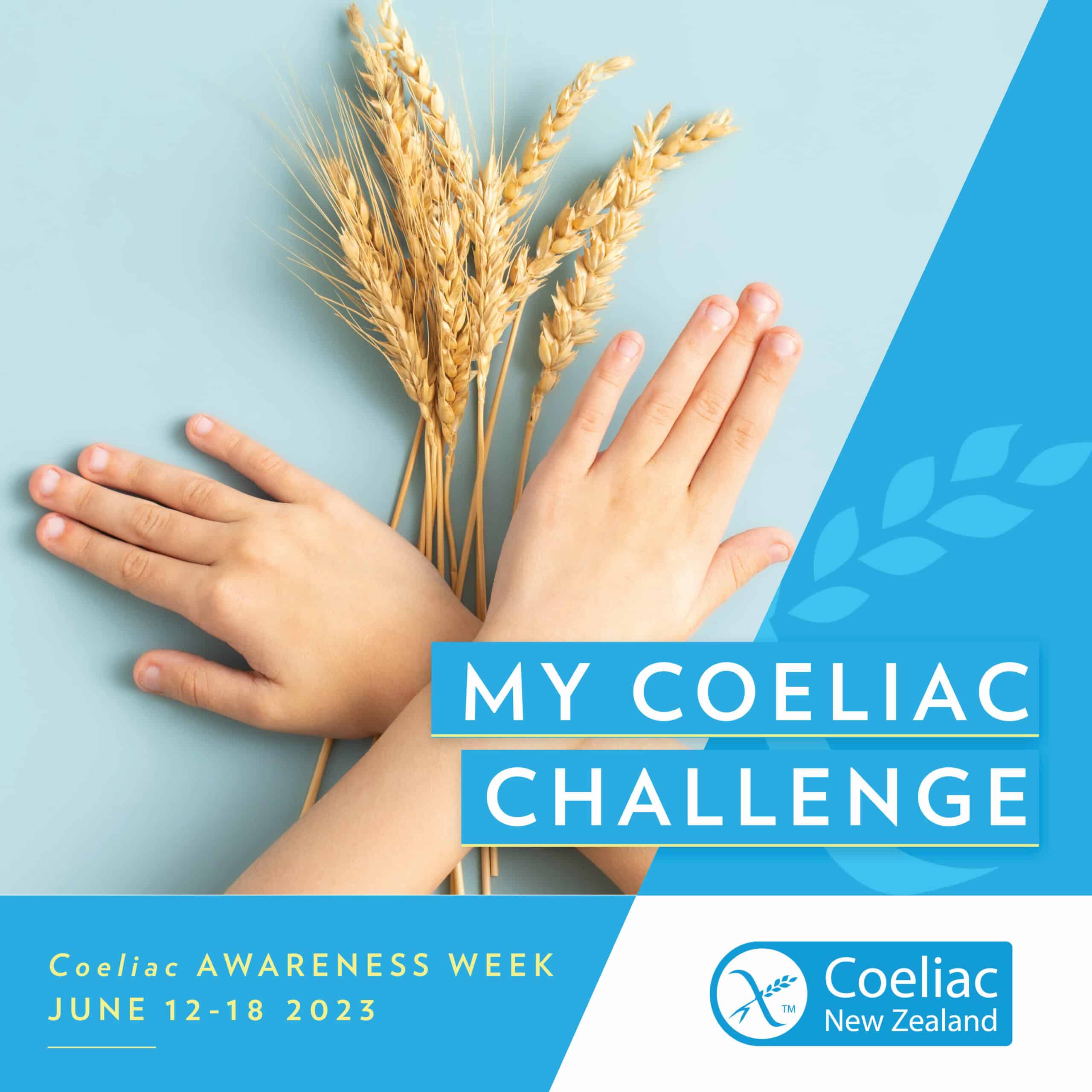

Helping people overcome their coeliac challenges is the theme of this year’s Coeliac Awareness Week, which takes place from 12 – 18 June.
A large proportion of the 100,000 New Zealanders estimated to be living with coeliac disease aren’t even aware they have it. That’s according to Coeliac New Zealand who says many more Kiwis are living with the autoimmune condition than are officially diagnosed due to the nature of the often vague and wide-ranging symptoms, as well as the barriers to diagnosis.
Coeliac disease occurs when exposure to gluten, a protein found in wheat and several other grains, triggers an immune response. This reaction causes damage to the small intestine and can lead to a wide range of symptoms but most commonly abdominal pain, bloating, diarrhoea, and fatigue. If left untreated, coeliac disease can lead to serious health issues, such as osteoporosis and epilepsy. It’s estimated that one in 50 Kiwis have coeliac disease, but a significant number of these cases remain undiagnosed.
The theme - “My Coeliac Challenge – Take Charge, Get Diagnosed and Find Help” puts the spotlight on the challenges people living with coeliac disease face, and how these can be overcome. Whether you’re a parent struggling to prepare coeliac safe food for your child at home, looking for ways to reduce your food bill with the increased cost of gluten-free foods, or wanting to have the confidence to eat out safely, the coeliac community faces a wide range of challenges on a daily basis.
The theme also aims to raise awareness for people living with the condition that are yet to be diagnosed. Their challenge may be recognising the symptoms, or overcoming the fear of being tested. Diagnosis and adhering to a gluten-free diet is life-changing, so it is important to educate others about identifying their potential risk, and the symptoms to look out for and to provide them with advice and support around testing.
How to get involved in Coeliac Awareness Week
We have produced a series of tiles that can be used by our members on social media. They are a great way to raise awareness about coeliac disease and for you to share your own coeliac challenge with your friends, family, and followers.
Keen to share your own #MyCoeliacChallenge on Facebook? Follow these 5 easy steps:
1. Email admin@coeliac.org.nz to request the Facebook and Instagram tiles to be sent to you
2. Select the tile (or tiles!) you want to share
3. Save as an image on your phone
4. Post on Instagram or Facebook during Coeliac Awareness Week with some words about your greatest coeliac challenge and how you overcome this to live well
5.Tag @coeliacnewzealand and use the hashtags #CoeliacNZ #MyCoeliacChallenge
For Schools:
Coeliac New Zealand has developed a fun and interactive resource kit for schools to help encourage learning and awareness around coeliac disease for children in years 7 to 10.
Each class will be given the challenge: If your coeliac or gluten-sensitive friend is coming for a sleepover what will you feed them? After some key learnings, the children can be creative and design a coeliac-safe, yummy, and fun meal plan for their proposed sleepover.
The resource kit includes - a lesson plan, information poster, and loop card game as well as recipe ideas.
Prizes: We have a $150 prize pack of gluten-free products and a book from a new Food Ambassador Buffy Ellen to give away to the school with the most menu entries. Good luck to all the schools that have registered. We have now run out of kits, however, if you would like a digital version please contact healthpromotion@coeliac.org.nz.
Diet Guide: Our Medical Advisory Panel has developed a new resource to help dietitians, nutritionists, and other health professionals provide information for patients about how to follow a strict gluten-free guide. If you would like a digital version please contact healthpromotion@coeliac.org.nz.
Thank you to this year's sponsors FreshLife, Bakels, Lee Kum Kee, and Bin Inn for providing financial support to enable us to deliver the week's activities, and to GoodePR who have partnered with us over the past 5 years to enhance the media outcome year on year.